
Top 3 Vitamins We Love for Skin Health
Learn why we love Vitamin B3, Vitamin C, and Vitamin D, and how each can make a difference in your skin health.
Dr Michael Rich is a specialist dermatologist who has been performing tumescent liposuction for over 30 years. Find out if Liposuction is suitable for you at ENRICH Clinic.
At ENRICH Clinic, we have a wide range of dermatological and cosmetic body treatments tailored to individual body and patient needs.
At ENRICH Clinic, our treatments are performed by our medical team consisting of doctors, nurses, and dermatologists and are tailored to each patient’s skin health needs.
ENRICH Clinic is committed to your skin health and well-being with a range of dermatological & cosmetic treatments tailored to the individual. Our treatments are performed by our medical team consisting of doctors, nurses, and dermatologists.
Skin health is essential for everyone. ENRICH Clinic has a wide range of technologies and dermatological solutions to help you achieve your skin care goals.
Our skin is the largest organ of our body and performs many vital functions. It protects us from the sun, wind, cold, and other environmental elements. It also helps us regulate our body temperature and eliminates toxins from our system. As one expert said, “it keeps the inside world in and the outside world out.”
But with the changing climate, our skin faces more threats than ever before. Rising temperatures, air pollution, and UV radiation contribute to an increased risk of skin problems. Below is a list of some of the ways climate change is impacting our skin health.
Climate change is a severe threat to global health, and one of its most immediate consequences is the rise in air pollution. As the Earth’s temperature increases, certain pollutants like carbon dioxide, methane, and ozone become more prominent in the atmosphere. These pollutants–in particular, polycyclic hydrocarbons from burning fossil fuels–can settle on our exposed skin or be inhaled and absorbed through the pores.
Once these pollutants are inside our bodies, they can cause inflammation and damage the cells responsible for generating new skin tissue. These can result in premature ageing and pigmentation changes, atopic dermatitis, eczema, and acne flares.
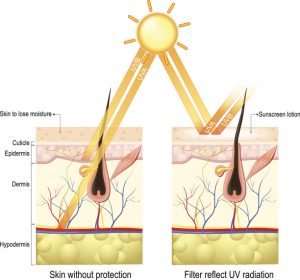 Climate change has also resulted in an alarming increase in the Earth’s average temperature, which has allowed for larger amounts of ultraviolet radiation from the sun to penetrate our atmosphere and reach our skin. This UV radiation is known to cause a plethora of long-term dermatological issues, including wrinkling, premature ageing and, most notably, skin cancer.
Climate change has also resulted in an alarming increase in the Earth’s average temperature, which has allowed for larger amounts of ultraviolet radiation from the sun to penetrate our atmosphere and reach our skin. This UV radiation is known to cause a plethora of long-term dermatological issues, including wrinkling, premature ageing and, most notably, skin cancer.
This is because the longer we are exposed to the sun, the weaker our antioxidant defences are. These defences are meant to protect the skin from these harmful radiation sources. This can be due to increased levels of ozone pollution and other air pollutants that come into contact with the skin’s surface area.
In addition, higher temperatures brought on by climate change can impair our skin’s sweat functions. This could lead to heatstroke if prolonged exposure occurs without any break from the sun’s rays.
The global climate crisis is also having a major impact on the world’s ecosystems and weather conditions, which in turn has damaging consequences for our skin. With extreme temperatures, increased flooding, and droughts becoming more common, the environment is changing in ways that allow previously confined diseases to spread to new areas.
In particular, mosquito-borne illnesses such as dengue fever and Zika virus rapidly spread due to warmer climates that allow their vectors to survive longer through their breeding cycles.
Not only can these illnesses cause nasty skin infections, but they can also have other long-term health effects on exposed individuals.
Extreme weather conditions like heat waves and cold snaps may also affect the skin. This is because air humidity can lead to skin dryness, psoriasis and increased sensitivity, while cold weather can strip away the skin’s natural oil barrier.
With climate change leading to longer summer days and hotter temperatures, it’s more important than ever to take these steps to protect ourselves from harmful UV radiation.
Sunscreen has been proven to be incredibly effective in protecting skin from the sun’s harmful rays. This is because its active ingredients, such as zinc oxide and titanium dioxide, absorb and reflect dangerous UV rays before they reach the skin.
But not all sunscreens are created equal. Investing in a quality sunscreen that blocks UVA and UVB rays and has an SPF of 30 or higher is important.
Apply sunscreen to all exposed areas, including your face, neck, arms, legs and other areas of the body, at least 20 minutes before going outdoors and reapply every two hours or after any swimming or sweating.
When asked what the best anti-ageing cream is, Dr Rich always replies, “50+ sunscreen, especially on the face, in every season”.
In addition to sunscreen, clothing can effectively protect from the sun’s rays. Loose and lightweight clothing with a tight weave that covers as much skin as possible can act as a barrier between your skin and the sun.
Long-sleeved shirts, pants, hats, and sunglasses are all key items to bring along with you when spending time outdoors. Additionally, darker colours are more effective at blocking sunlight than lighter shades.
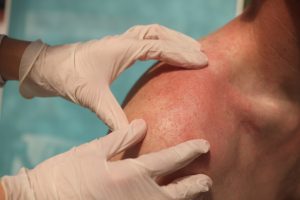 Staying in the shade is another great way to protect your skin from the sun’s rays. Try to seek out shady spots that are covered by trees or canvas umbrellas when spending time outdoors.
Staying in the shade is another great way to protect your skin from the sun’s rays. Try to seek out shady spots that are covered by trees or canvas umbrellas when spending time outdoors.
Additionally, UV-protective window films can be used to reduce the amount of ultraviolet radiation entering your home, office or vehicle, allowing you to enjoy the outside without exposing yourself to too much direct sunlight.
Finally, it is important to remain vigilant and have your skin checked regularly by a qualified healthcare professional. This will help you identify any concerning changes in your skin that may be indicative of something more serious, such as skin cancer.
Climate change is having a major impact on our skin’s health and should be taken seriously. It is important now, more than ever, to take steps to reduce our carbon footprint and protect ourselves from the sun’s harmful rays. Also, if you have any concerns about your skin or looking for skin cancer treatment, it is best to seek out advice only from trusted dermatologists.
Contact Enrich Clinic for professional advice.
*With all surgeries or procedures, there are risks. Consult your physician (GP) before undertaking any surgical or cosmetic procedure. Please read the consent forms carefully and be informed about every aspect of your treatment. Surgeries such as liposuction have a mandatory seven-day cooling-off period to give patients adequate time to be sure of their surgery choice. Results may also vary from person to person due to many factors, including the individual’s genetics, diet and exercise. Before and after photos are only relevant to the patient in the photo and do not necessarily reflect the results other patients may experience. Ask questions. Our team of dermatologists, doctors and nurses are here to help you with any of your queries. This page is not advice and is intended to be informational only. We endeavour to keep all our information up to date; however, this site is intended as a guide and not a definitive information portal or in any way constitutes medical advice.
"*" indicates required fields
Combining Dr Rich’s dermatological skill with his knowledge of restorative skin regimes and treatments, the ENRICH range is formulated to help maintain and complement your skin. Our signature Vitamin C Day & Night creams are now joined by a Vit A, B,&C Serum and a B5 Hyaluronic Gel, both with hydration properties and much, much more.

Learn why we love Vitamin B3, Vitamin C, and Vitamin D, and how each can make a difference in your skin health.
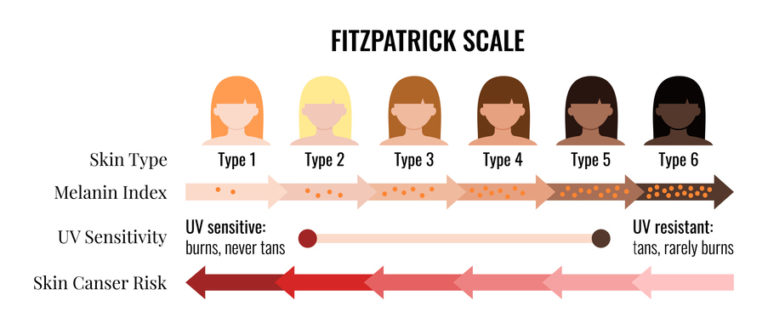
Learn what the Fitzpatrick skin type system is and why we always check your skin type before any procedure at Enrich.
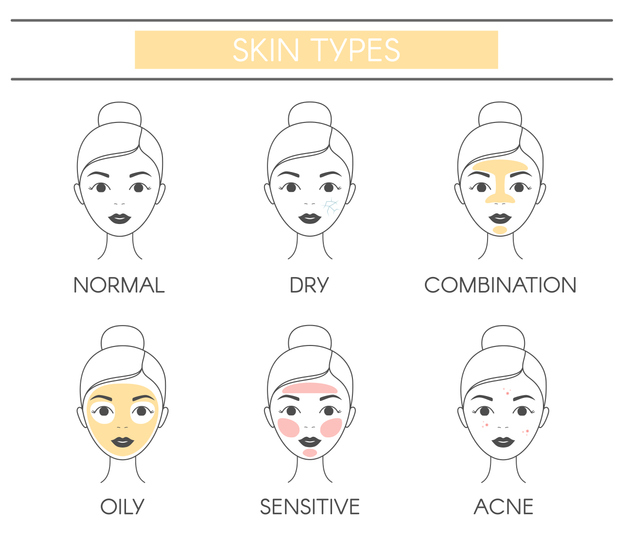
We address skincare trends & debunk myths while also providing guidance on products & treatments you should avoid based on your skin type.
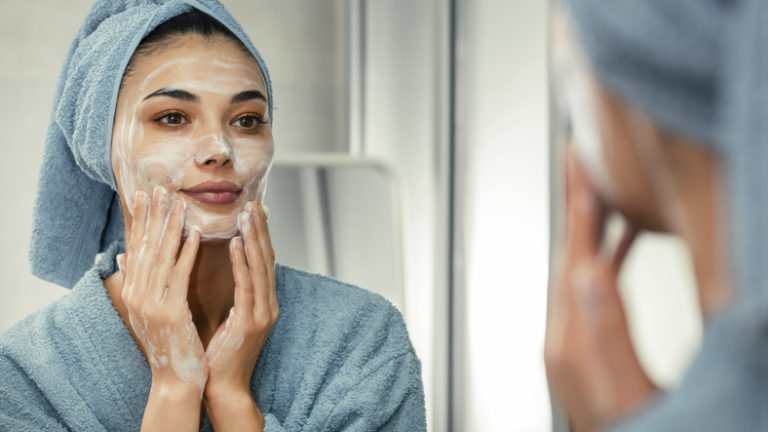
Makeup can temporarily make your skin look flawless & dewy, but it merely masks imperfections & may not address the root causes of your skin concerns.
Subscribe to the ENRICH newsletter and receive latest news & updates from our team.
Enrich Clinic acknowledges the Traditional Lands of the Wurundjeri Woi Wurrung and Bunurong peoples of the East Kulin Nations on which we work and trade. We pay respect to their Elders past, present and emerging. We extend our acknowledgement and respect to the LGBTQIA+ community who we welcome and support. Read our full Acknowledgement Statement here
